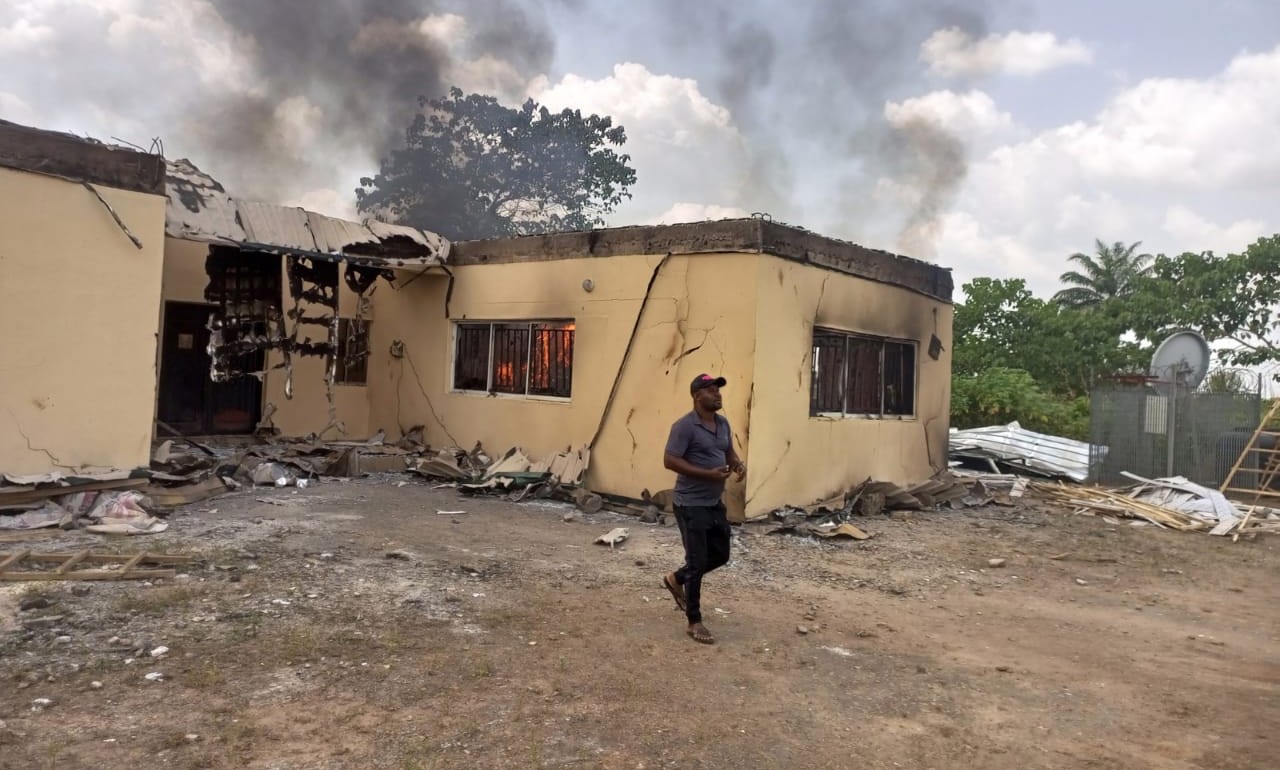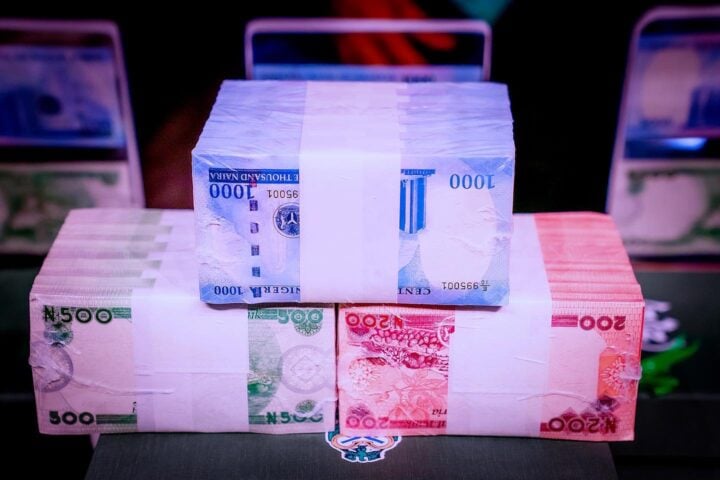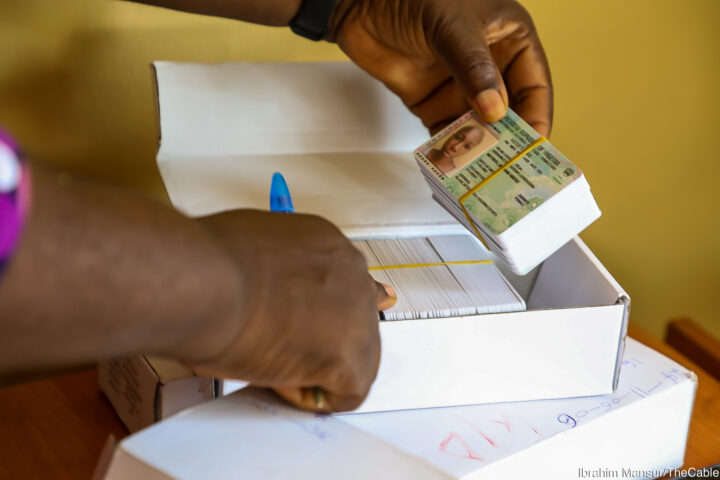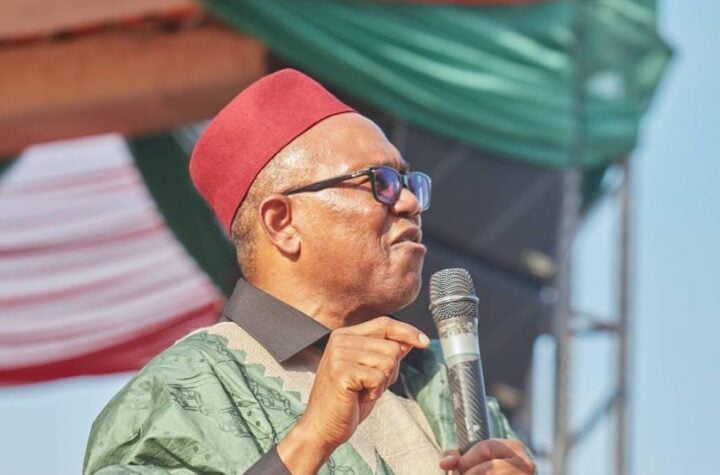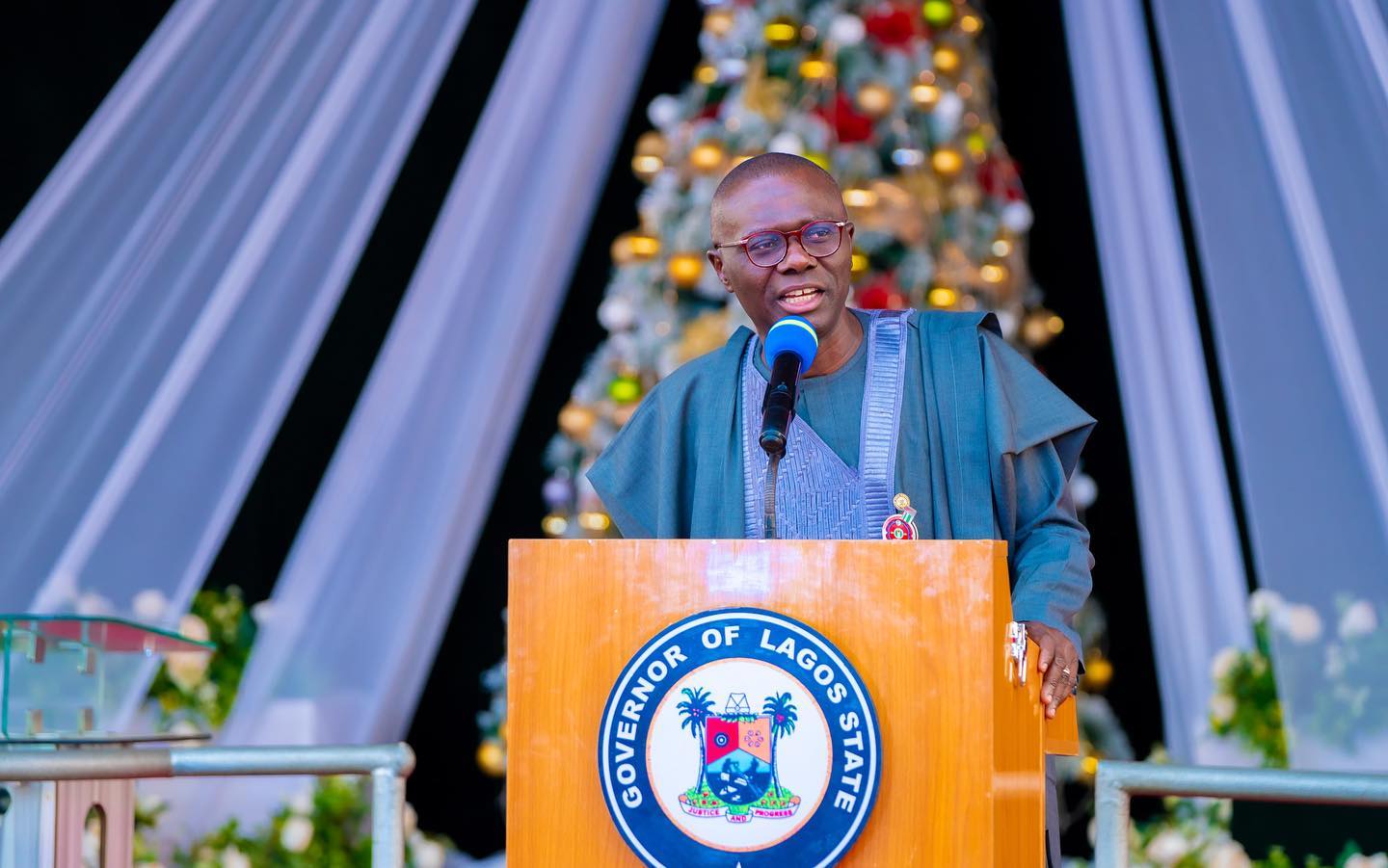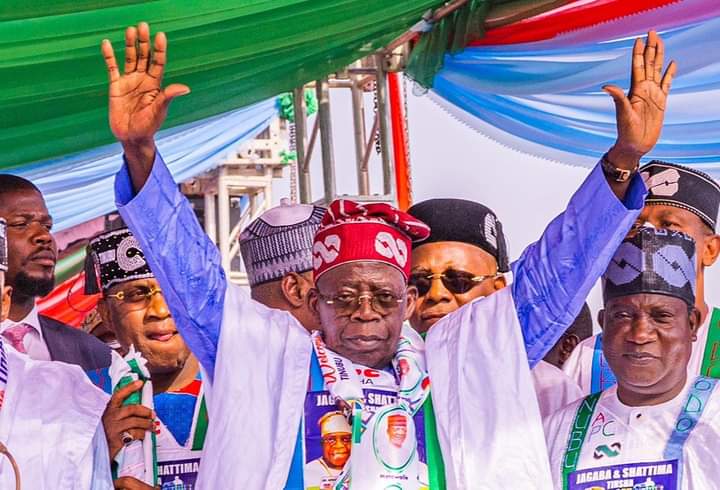INEC office burnt in Ebonyi
In the forthcoming weeks, Nigerians will be going to the polls to elect new leaders. It’s been the country’s longest run of democracy since independence. And with a new Electoral Act, a fresh hope of transparency and credibility in the elections is renewed. But the challenge of insecurity is threatening to usurp years of democratic growth.
Some parts of the country like the north-east and north-west are painfully familiar with the sound of gunfire and the fear of being swooped away by gunmen. However, another region is slowly becoming a hot spot — the south-east.
THE CONSTANT ATTACKS
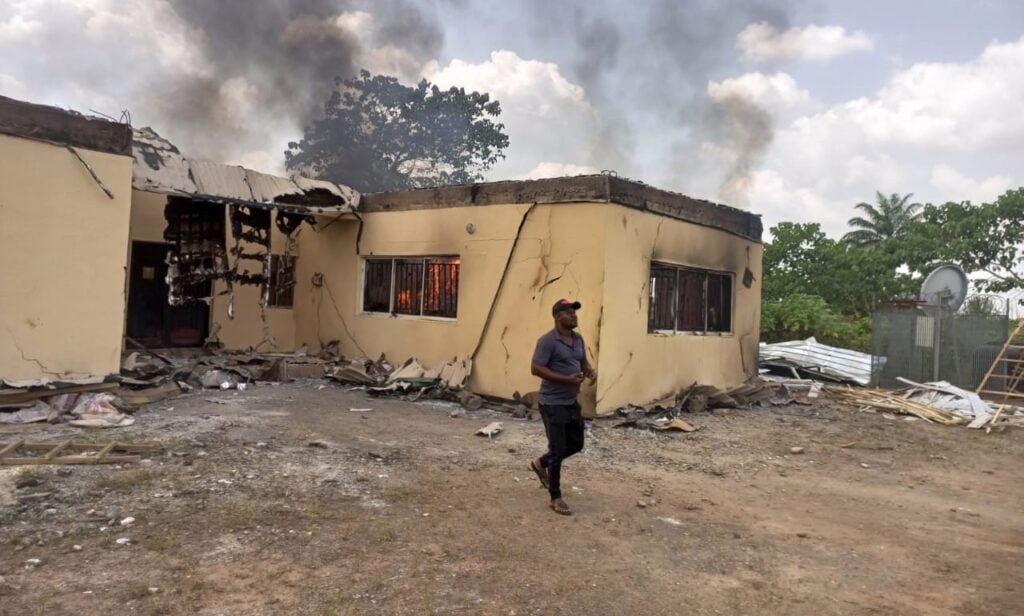
Nigeria’s south-east zone comprises five states — Anambra, Imo, Abia, Enugu, and Ebonyi. Asides from sharing a common language, each of these states have recorded multiple violent attacks recently.
Advertisement
According to the Nigerian elections violence tracker, 594 violent events have been recorded across the zone including violence targeting civilians. Most of the attacks have been on the offices of the Independent National Electoral Commission (INEC).
Data released by the commission in December showed that Imo ranked top of the list of states in the country with the most attacks from 2019 to 2022. The four other south-eastern states were also featured on the list.
INEC said the list did not include damages to facilities as a result of fire “accidents”, snatching/destruction of electoral materials during elections, burglary, and attack on election duty officials. This means the figures could be higher.
Advertisement
In December, the electoral body said the assault on its office in Imo was worrying. The electoral offices in the state had experienced attacks four times in three weeks. Although election materials were not affected, the story was not the same for previous attacks.
Like Imo, INEC also recorded attacks on its office in Iboko, Izzi LGA of Ebonyi in November. Festus Okoye, the INEC national commissioner, said the office was set ablaze by unidentified persons.
“Although no casualties resulted from the attack, the main building and all the movable and immovable items inside it were destroyed,” he had said.
“These include 340 ballot boxes, 130 voting cubicles, 14 electric power generators, large water storage tanks, assorted office furniture and fixtures and yet-to-be-determined quantities of permanent voters’ cards (PVCs).
Advertisement
In 2021, the commission recorded an attack on its renovated Abia office in Ohafia LGA. Just like Ebonyi, no casualties were recorded but the commission said the incident led to the destruction of electoral materials and equipment worth millions.
However, despite assurances of tightened security and commitments by the government to protect the electorate, attacks have persisted, claiming more lives.
‘INSECURITY POLITICALLY MOTIVATED’
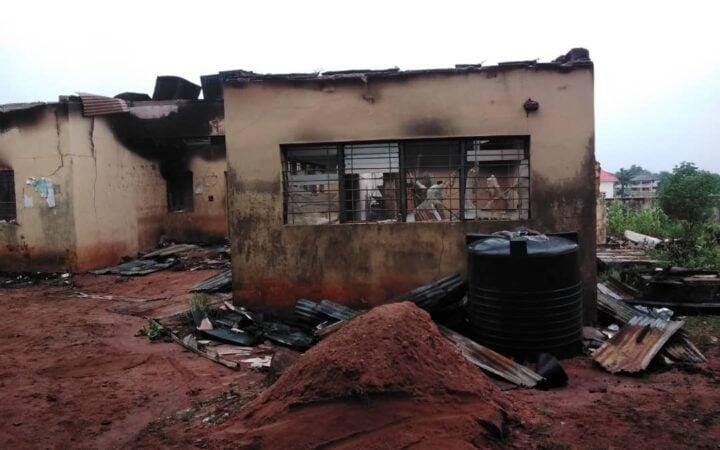
Typical of many problems in Nigeria, Sani Usman, a former spokesperson of the Nigerian army, believes that the insecurity in the region is politically motivated.
Advertisement
“Once there’s no enabling environment for people to discharge their civil responsibility, you know there’s going to be a problem,” he told TheCable.
“People need to stop pretending like we don’t know what is right before us and stop shifting blame. We’ve been pretending we don’t know these so-called unknown gunmen when they are actually known.”
Advertisement
Across the south-east, the Indigenous People of Biafra (IPOB) have made their position clear. The group “is not interested and will never involve” itself in the upcoming election. The only action the group said it would take was to call its people to boycott voting if the “need” arises.
In October, the federal government said the group attacked 164 police stations in the south-east and killed 175 security operatives.
Advertisement
Although IPOB has denied culpability for the spate of attacks and killings in the geopolitical zone, security agencies have continued to blame the group.
But whether IPOB is interested in the elections or not, the group has infamously proved that offenders of its rules will have a consequence to pay. Flouters of the sit-at-home order of the group can testify to the consequences.
Advertisement
INSECURITY CONTRIBUTING TO LOW PVC COLLECTION
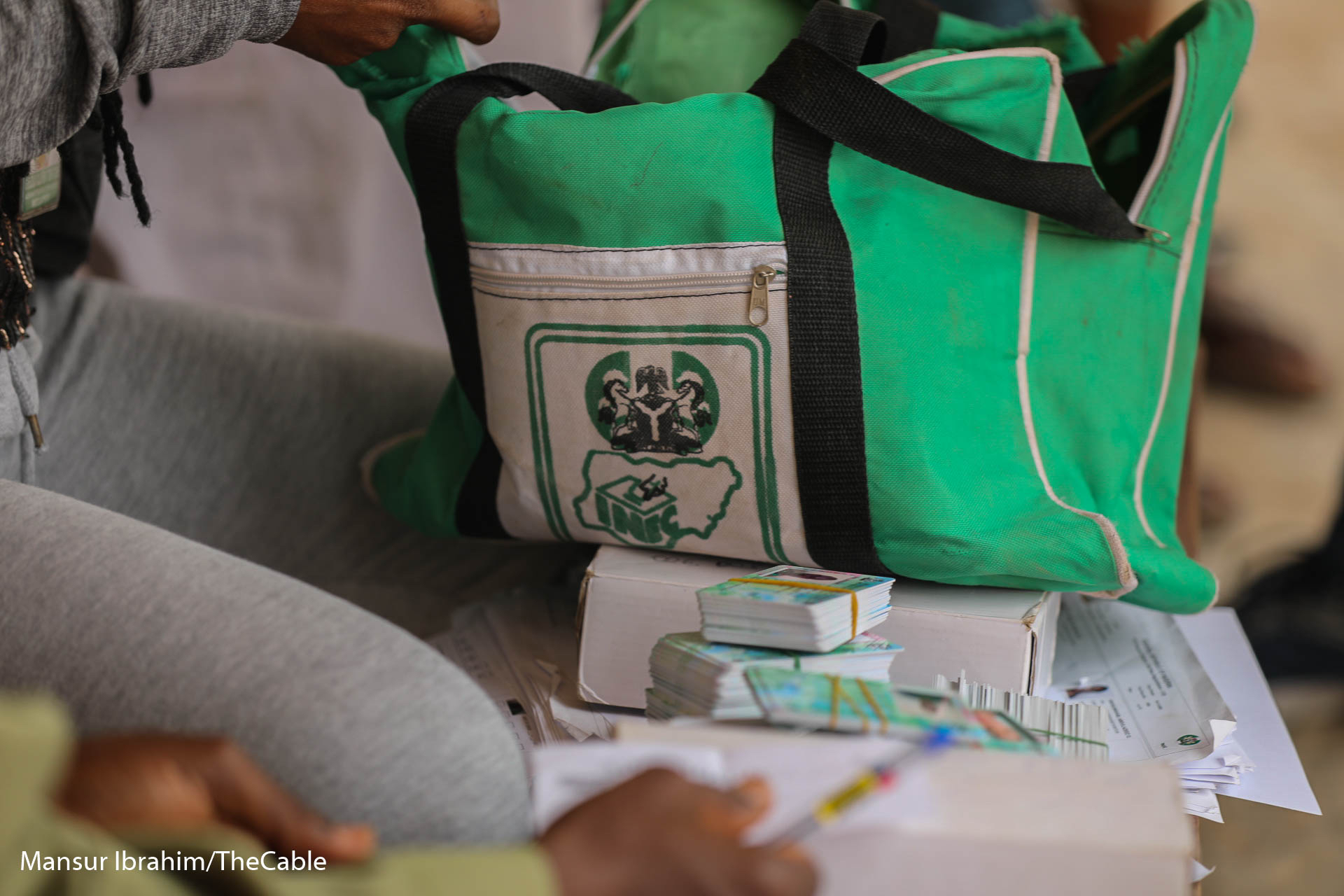
In December, INEC said there were about 300,000 uncollected PVCs in Imo. Sylvia Agu, the state resident electoral commissioner (REC), said some of the PVCs were from the previous continuous voter register (CVR) exercise from 2011 to 2022.
She said the incessant attacks on the commission were of great concern, adding that it may have been a factor contributing to the low PVCs in the state.
“These attacks are of great concern to the commission, considering its negative consequences on the commission’s preparations for the 2023 general election,” she had said.
Residents of the state say she is right. Ngozi Egbu, a resident of Owerri, Imo’s capital, told TheCable that fear of what would happen to her upon collection of her PVC has kept her far away from the electoral body.
“With all these things happening in Owerri, I cannot go and risk my life just because I want to collect my PVC,” she said.
“Every day, one shooting or the other and especially at INEC. I have children to look out for. I did not vote before and I did not die, I would like that to remain the same.”
In Enugu, the case is the same. Chukwuemeka Chukwu, state REC, said the state had over 100,000 uncollected PVCs.
“We are concerned about people’s lack of interest to collect their PVCs,” he had said, adding that the 2023 election would be different from previous polls.
THE FEAR OF THE UNKNOWN
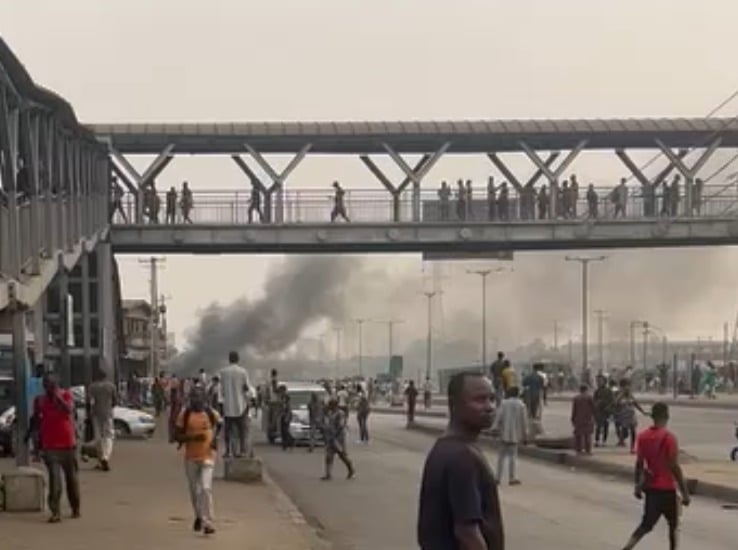
But voters are not the only ones treading carefully. Candidates of various political parties in the zone have traded physical rallies for social media campaigns.
“Politicians no longer do their campaigns in rural communities because of a fear of the unknown. Some of the candidates intentionally avoided community campaigns. Some of them restrict their campaigns or political gatherings to the municipal because it is relatively safer,” Ifeanyi Iheakanwa, TheCable’s Imo correspondent, said.
“The fear of the unknown is increasing. Definitely, there’ll be some sort of voter apathy. Some people don’t even go to their villages anymore; they have been sacked. Many people are still under an impression that an election won’t hold.”
Finian Ali, a resident of Enugu, is convinced that even if security is deployed to manage the situation, it would not do much to ease the brewing tension.
“They’ll probably send a lot of security to the south-east as they (the federal government) promised. Before you know it, they’ll parade the street with large guns and tell us to come out and vote because it’s safe but you know we don’t trust the security officers. If we even see many of them we’ll be scared. Because most of the time, it never ends well,” Ali told TheCable.
“People are living in fear, the whole south-east is a ticking time bomb. Insecurity will definitely affect the elections; so it won’t be strange that there’ll be a disparity as compared to the last elections. Most communities are prone to violence. So, for someone who did not travel because of festivities, will the person travel for the election? If the situation is not managed if IPOB declares an election day as sit-at-home, what do you think will happen?”
According to Usman, only the people in power can end the problem they are responsible for.
“We neglected a large chunk of the Nigerian population which is the youth. Most of the mayhem is being carried out by them and that is because they are ignorant of what is happening,” Usman said.
“Dialogue is the key and it involves all aspects. Politicians need to stop pretending that they’re being targeted. No. It is a problem that they created themselves and they can solve it.”
Dan Iwuorie, Imo state former commissioner for sports, told TheCable that the fear among the people is expected. Still, he is optimistic that measures would be put in place to curb the insecurity.
“We cannot be taken for granted by a few people that think the country belongs to them. Elections must hold,” the former commissioner said.
But while Iwuorie is hopeful, other indigenes of the region are cautious. For Ruth Okoro, a resident of Enugu, voting in the forthcoming elections will only be reserved for the brave ones as the south-east has become an unpredictable zone.
When asked if she will be one of the brave voters, she hesitates, and then lets out a breathy “Yes”.
Giving some assurances, on Thursday, Hope Uzodinma, Imo governor, said insecurity and threats from non-state actors will not affect the conduct of elections in the south-east.
